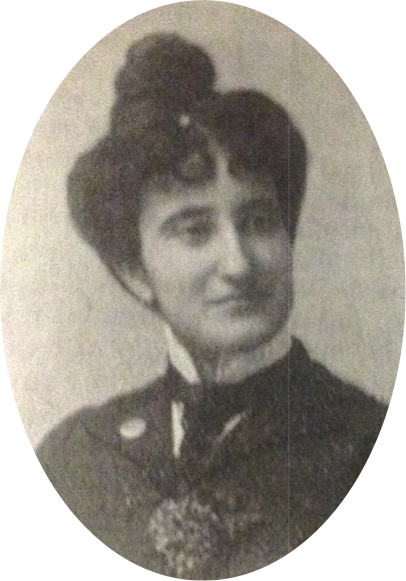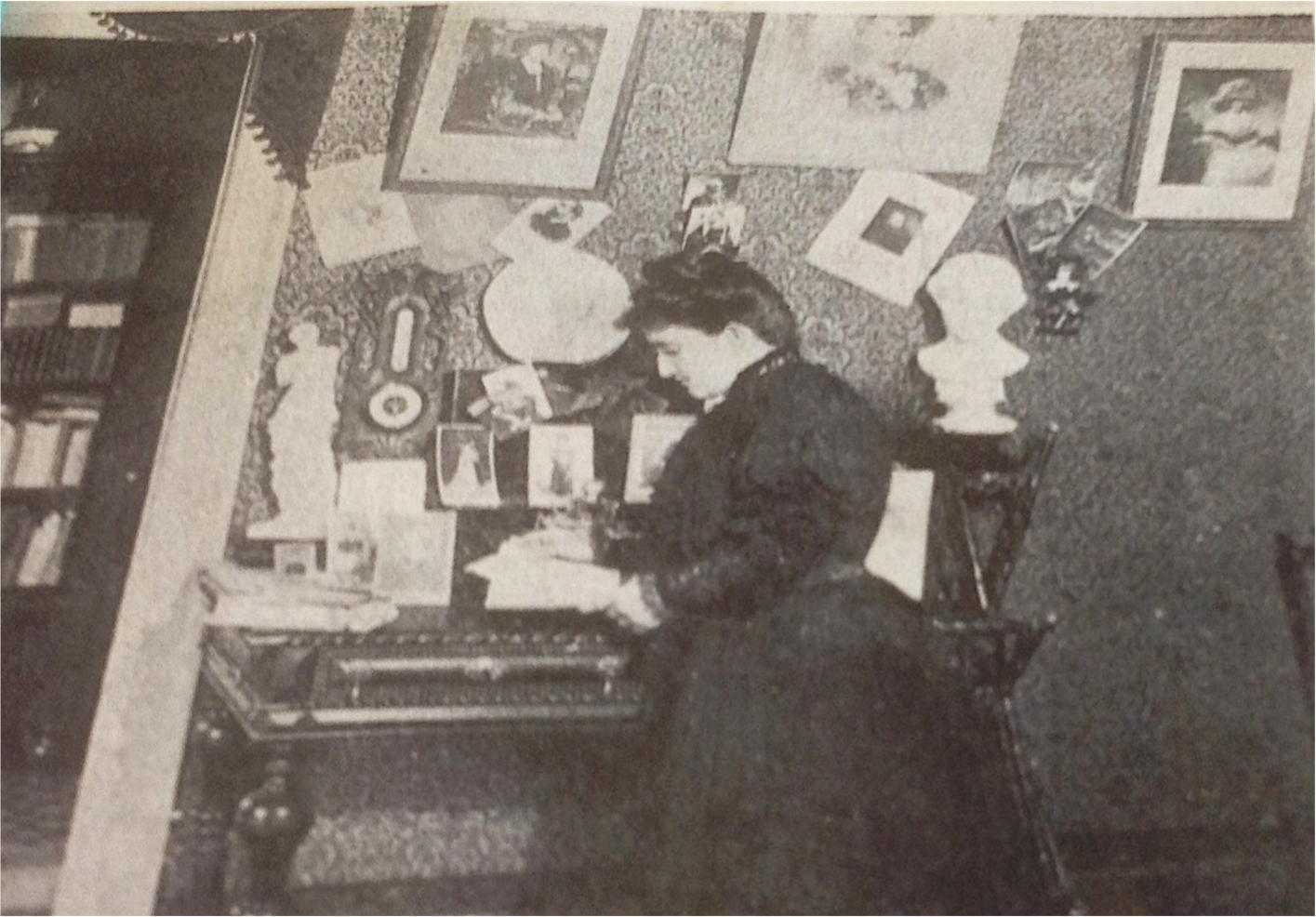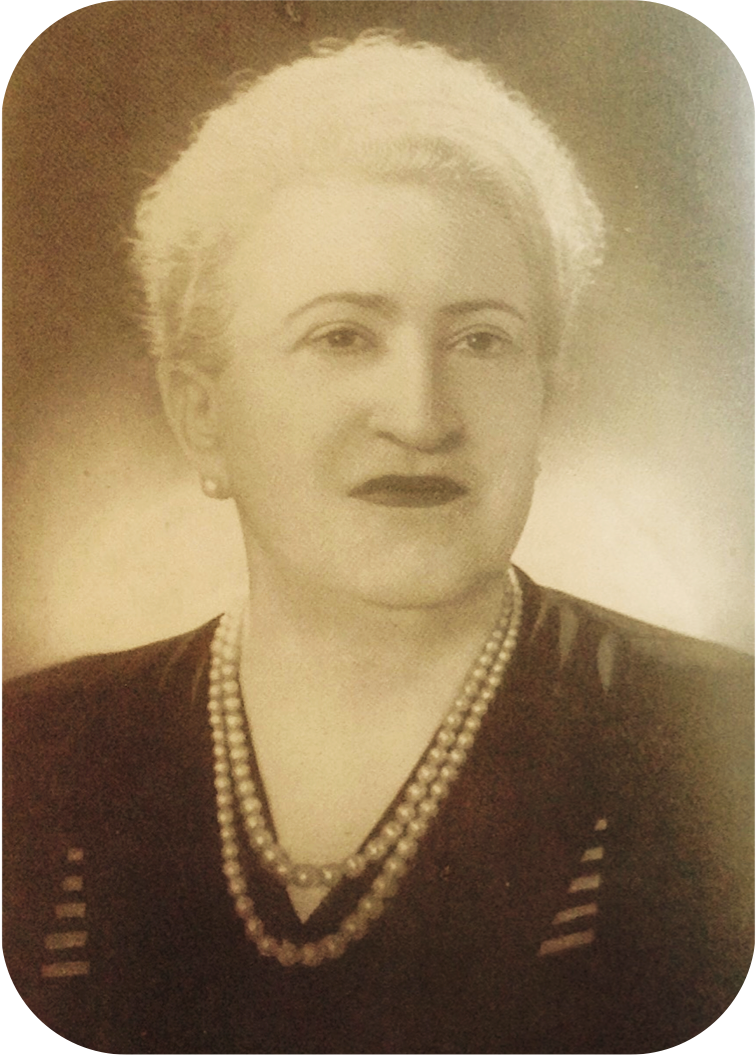

Born in Setúbal, on the 26th of May of 1881, Maria Olga de Morais Sarmento da Silveira distinguished herself as a writer and conference speaker – having travelled extensively, she forged close bonds with the European intellectual circle of the time – but also as an activist, fighting for gender equality.
She lived part of her childhood in Elvas (a city situated in Portugal´s Alentejo district), where she met and developed a friendship with Virgínia Quaresma and Maria Veleda, two other prominent Portuguese feminists of this era, by way of several evening gatherings held at Sarmento´s house, which were attended by ladies associated with the field of the Letters. She married early, at the age of 16, to a medical officer that would later die in Angola, during the military campaign of 1907.
She was a writer for the magazine Sociedade Futura (Future Society, in operation between 1902 and 1904), where she also assumed the position of director. In 1906, she became the first Portuguese woman to write a text of feminist nature – entitled “Feminist Problem”, it ended up being published as a small book. During this very same year, she was appointed a worthy member of the then recently created Portuguese Committee of the French association La Paix et le Désarmement par les Femmes (Peace and Disarmament for Women) and gave a speech at Lisbon´s Society of Geography, where, by publicly defending the right to divorce and the female vote, she would add further expression to her feminist views. Nevertheless, because she was a firm monarchist, she eventually grew apart from the group of female intellectuals that would create the Republican League of Portuguese Women, having even been strongly criticized for defending Princess Amélie of Orléans – the last Queen consort of Portugal – a few years later, while living in Brazil.
Following the implantation of the Republic in Portugal, Sarmento naturally chose to distance herself from the country, having started to live in Paris, where she became rapidly known within the artistic and literary sphere – in fact, some of the most illustrious Parisian figures of the time passed through her salons.

A founder and president of the Feminist Section of the Portuguese League of Peace, she nurtured a very close friendship with the baroness Hélène de Zuylen de Nyevelt, whom Sarmento saved from the Holocaust and to whom she would dedicate her Memoirs.
In addition to the broad acknowledgement that she obtained, as a conference speaker, throughout various countries – France, Belgium, United States of America, Uruguay, Argentina, among others – she received high praise from several organs of the Brazilian press when a conference of hers, held in 1911, caused a roar in that country: while speaking in regards to the role of women in the society of the time, Sarmento impressed several attendees as she evoked inspiring examples of women that distinguished themselves at an intellectual and scientific level, with it aiming to demonstrate that virtually any activity performed by a man is capable of being accomplished by a woman as well.
She also maintained correspondence with various Brazilian, French, Spanish and Portuguese personalities, among whom the Brazilian writer and abolitionist Júlia Lopes de Almeida (1862-1934) and the Galician writer and activist for women´s rights Emília Pardo Bazán (1851-1921), and collaborated with the periodicals A Crónica, Almanaque das Senhoras, Diário Ilustrado and Fradique.
Olga Sarmento bequeathed the whole of the rather vast patrimony she possessed in her French residence to the Municipality of Setúbal, which included furniture, tapestry, art objects, paintings, about 3000 books shelved in her library and her most esteemed autograph collection, spread out across postcards, letters, drawings and books, which had been gathered from the aforementioned figures with whom she corresponded.

Having been awarded with the Orders of Christ, of Saint James of the Sword and of the Legion of Honor, she died in Lisbon, on the 19th of December of 1948.
References:
CASTRO, Zília, ESTEVES, João (dir.), Dicionário no Feminino (séculos XIX-XX), Lisboa, Livros Horizonte, 2005.
VILAR, Anita, Panorama de uma História Local no Feminino, Centro de Estudos Bocageanos, 2013.